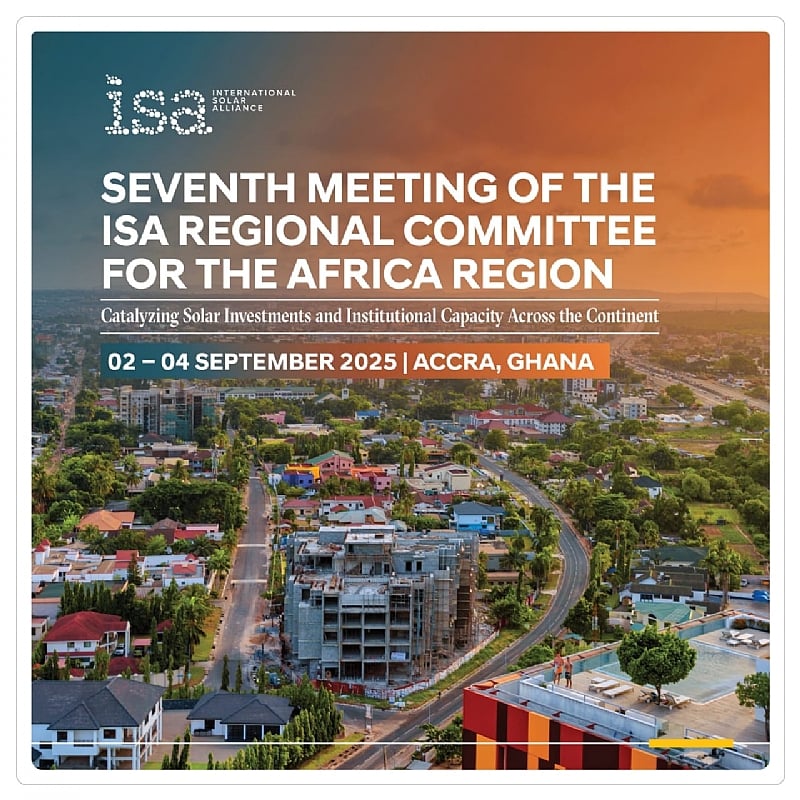Africa, endowed with abundant solar resources yet grappling with an energy deficit affecting over 600 million people, is poised for a solar revolution. The International Solar Alliance (ISA) has identified the continent as a critical focus area for its mission to accelerate global solar adoption and achieve universal energy access. The upcoming Regional Committee Meeting (RCM) in Accra, Ghana, marks a crucial juncture in this endeavor, bringing together governments, financiers, innovators, and development partners to convert ambitious goals into tangible outcomes. This gathering will leverage ISA’s core pillars – catalytic finance, capacity building, technology roadmaps, and regional engagement – to unlock Africa’s solar potential and drive sustainable development. A key challenge remains the meager share of global clean energy investment reaching Africa, currently less than 2%. The RCM aims to rectify this by showcasing ISA’s financing instruments, including the Africa Solar Facility and the Multi-Donor Trust Fund, designed to de-risk investments and attract public and private capital.
The RCM agenda prioritizes catalytic finance as a crucial enabler of solar deployment. Persistent barriers, such as perceived investment risks, underdeveloped financial markets, and limited concessional financing, hinder solar expansion. The meeting will connect African member countries and development finance institutions with opportunities to leverage ISA’s financing mechanisms, bolstered by insights from sovereign wealth funds, pension funds, and impact investors. The objective is to stimulate a flow of capital into solar projects, overcoming financial bottlenecks and accelerating the transition to clean energy.
Recognizing that institutional capacity is vital for sustainable solar development, the RCM will address the need to bolster Africa’s solar workforce. The continent’s limited share of global clean energy investment has stifled job creation in the renewable energy sector. ISA’s integrated ecosystem, featuring Solar Technology Application Resource Centres (STAR-C), fosters technical training, innovation, and institutional strengthening. Through partnerships with leading technical institutions like the Indian Institute of Technology Delhi, the French Institut National de l’Énergie Solaire, and the National Power Training Institute, ISA aims to enhance its capacity-building efforts. The RCM will facilitate discussions on establishing National Delivery Units under Mission 300, an initiative designed to achieve ambitious solar deployment targets and create a robust solar workforce across Africa.
The RCM will also spotlight the transformative potential of solar energy in addressing food security challenges. Africa’s heavy reliance on rain-fed agriculture exposes the sector, which employs a substantial portion of the continent’s workforce, to significant risks. Solar-powered solutions for irrigation, cold storage, and other agricultural applications offer a pathway to enhanced productivity, reduced food spoilage, and improved rural livelihoods. The meeting will showcase successful pilot projects under ISA’s “Scaling Solar Applications for Agricultural Use” program, providing valuable insights from participating member countries.
Furthermore, the RCM will emphasize the critical role of digitalization and artificial intelligence in accelerating the energy transformation. Digital technologies offer significant potential for optimizing solar deployment, improving grid efficiency, and reducing investment costs. However, a global digital divide poses a challenge for developing economies like those in Africa. The RCM will facilitate discussions on leveraging digital public infrastructure, AI-driven energy management systems, and digital procurement platforms to enable smart solar expansion and bridge the digital gap.
In essence, the ISA Regional Committee Meeting in Accra represents a significant step towards realizing Africa’s solar potential. By focusing on catalytic finance, institutional strengthening, technology transfer, and cross-sector integration, the meeting aims to create a conducive environment for large-scale solar deployment. The partnerships and roadmaps forged in Accra will be instrumental in driving sustainable development, improving energy access, and enhancing the lives of millions across the continent. The ISA’s efforts, coupled with the commitment of African member countries, will play a crucial role in achieving a clean energy future for Africa.


